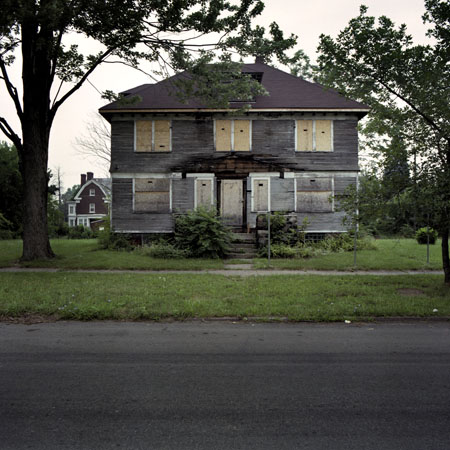“Falling through the cracks” is a common expression for something being neglected, forgotten, or otherwise subject to errors of omission in organizational life. The same can happen in journalism. We might even consider how a “news crack” develops: a series of events in several areas of interest will lead to a succession of stories that seem to cover a lot of ground, but one result will be that a genuine subject of concern will be forgotten, not least because a similar concern has been taken up elsewhere. Thus, the news might cover the recession, health care, the war in Afghanistan, a sex scandal (or two), the rising stock market, and the war again, and one might think that leading issues of the day are being reported much as they actually happen. In fact, if the public is told that the economy is rebounding and more people likely to be covered by health care, then they could be excused, perhaps, for thinking that the major question remaining is whether we are going to “abandon” Afghanistan. So it apparently seems to recent proponents of military escalation in that country (note for the younger reader: “escalation” is a word that was used a lot in the Vietnam War).
Let me suggest, as long as we are talking about abandonment, that something is missing.

This is one of the photographs from Kevin Bauman’s collection of 100 abandoned houses. I didn’t choose it because it was more striking or sad or poignant or provocative than the others in the collection. The house is one of many such homes–thousands upon thousands in Michigan, Florida, California, and all around the country. We are still in the midst of the most damaging foreclosure crisis in US history, and the news still could get worse before it gets better. In any case, it has been surreal in some areas: At one point the Chicago Tribune reported that the median home price in Detroit was $7500. Now it has rebounded to a remarkable $15,000. I guess it’s good news when houses once again cost more than the cheapest new car (maybe), but I’d say we still have a ways to go.
And then there is the house in the photograph. Spectators often resonate to a genuine pathos in these images of abandonment. We never knew who was there and it is obvious that there is no one to relate to now, and yet the structure seems haunted with the ghosts of forgotten lives. Houses have stories, and they are full of stories. Each of us can remember some house–it need not even have been our own–where we were running through the doors, gazing out the windows, and gasping with delight or shock while experiencing the many twists and turns of family life. in place of that, the boarded up house offers only a shabby mausoleum.
There also may be another, less familiar reason for feeling the sadness in this photograph. America is the most thoroughly liberal nation–in the original, Lockean sense of liberalism that, to put it baldly, has “liberty” deeply entangled with “property.” What is less often recognized is that John Locke (and others) defined property not merely by possession but also according to use. So it was, they claimed, that the original inhabitants of the Americas didn’t really own the land as they had done so little to maximize its productivity. I wonder if the sense of failure that pervades images of desolate houses doesn’t tap into that subterranean current of ideology? If a house–or apartment complex or office building or factory–is shuttered, it isn’t being used productively; and, to Americans, at least, it then follows somehow that the place is returning to the wild. And if an empty building can suggest that nature is encroaching due to an absence of productive labor, one might sense that the economy and the entire social order–and, with that, the ground of liberty–is being eroded.
Curiously, the photographs of abandoned houses demonstrate that the property is still there, right in front of your eyes, in the sense that the thing to be possessed exists. But that is not enough, it seems. Instead, a sense of failure looms, and not merely the failure of someone to pay a mortgage. Frankly, I think this odd sense of collective danger, despite being based on a dubious idea of rightful use, may be, well, useful. The house is not just the record of an autonomous individual’s loss in a rational, albeit heartless marketplace. These houses are empty because they had been abandoned many times over a period of many years: by the banks, the corporations, Congress, various elites, and the press, to name a few. There is no need to intervene in another country when so much of this one is being abandoned.
[…] and Read More: nocaptionneeded.com Technorati Tags: America Share and […]